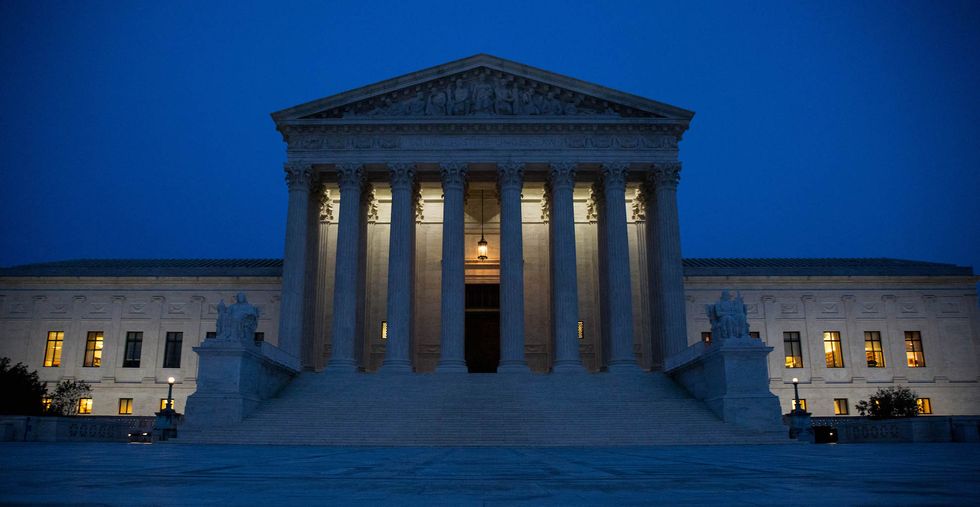
The U.S. Supreme Court is pictured in Washington, D.C., on Nov. 8. (Zach Gibson/Getty Images)

A New Jersey judge has ordered the Trentonian, a daily newspaper in the Garden State, to halt publication of any articles pertaining to an ongoing child abuse case in a ruling that is inherently at odds with the First Amendment.
Since October, reporter Isaac Avilucea has been writing about a 5-year-old Trenton boy who brought heroin and crack to his school, which resulted in the child being taken from his parents:
A city boy who took heroin to school in his lunch box last month has been taken away from his family and placed in foster care after a teacher at his school told investigators she found crack cocaine inside his folder this week.
From the little boy's mother, Avilucea also obtained a child abuse complaint, which was filed by the New Jersey Division of Child Protection, that sought to remove him his parents' custody. The mother's decision to give the complaint to the reporter was in violation of New Jersey law, according to the Washington Post:
(1) the state must generally keep any child abuse records and reports, (2) the state shall release such information to parents “only to the extent necessary for the requesting parent … to discuss services or the basis for the department’s involvement or to develop, discuss, or implement a case plan for the child,” but (3) the parent “shall keep the records and reports, or parts thereof, confidential and shall not disclose the records and reports or parts thereof except as authorized by law.”
As a result, the state got a court order for a temporary injunction, which was issued by Superior Court Judge Craig Corson and bars the Trentonian from publishing "any information obtained from the filed verified complaint." In addition, the order called on the newspaper "to remove from any publication source any documents if already printed or distributed."
Orders that impose "prior restraint" on news outlets are extremely rare in the U.S., as The Record points out in its report on the matter, noting the landmark 1971 decision, New York Times Co. v. United States.
In the decades-old case, then-President Richard Nixon's administration wanted to block the Times and the Post from publishing articles based on the Pentagon Papers, a classified study of the Vietnam War, but the request was declined by the U.S. Supreme Court, as it was seen to be in contradiction with the constitutionally protected freedom of the press.
"The all-but-total ban on prior restraints exists as a critical protection of First Amendment rights," Floyd Abrams, a legal expert on press freedom who was involved in the Pentagon Papers case, told The Record, later adding that the First Amendment "has always protected against prior restraints with particular vigor and authority."
And Avilucea is pushing back against the First Amendment challenge, too.
"I don’t know how we’re supposed to operate in a democracy if media organizations are having to capitulate to the court or the Attorney General’s Office," he said. "The discretion of what to publish should be vested in reporters and editors, not in the court."
"I didn’t steal the documents," the reporter continued, "and they were being unreasonable by making these false allegations."
Should the temporary injunction be upheld, such orders of "prior restraint" could — and likely would — greatly impact the way news organizations cover government all across New Jersey.
Judge Rodney Thompson is slated to hear arguments for and against making the injunction against the Trentonian permanent on Wednesday. The newspaper, of course, opposes the order.